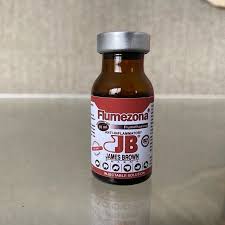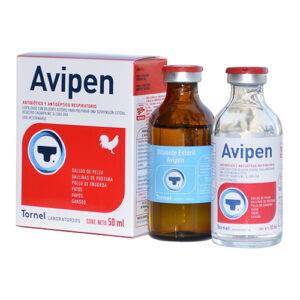Flumezona
Flumezona is a synthetic corticosteroid with potent anti-inflammatory and immunosuppressive properties. It is primarily used in veterinary medicine to treat a variety of conditions in animals, such as inflammation, allergic reactions, and autoimmune disorders. This drug acts similarly to other corticosteroids by modulating the immune response and reducing inflammation.
General Information
Drug Class: Glucocorticoid corticosteroid.
Potency: High potency, comparable to other corticosteroids like dexamethasone.
Forms: Often available as an injectable solution, but formulations may vary depending on the manufacturer and intended use.
Mechanism of Action
Flumezona works by:
Suppressing the release of pro-inflammatory substances such as cytokines and histamines.
Inhibiting the migration of immune cells to the site of inflammation.
Stabilizing cellular membranes, reducing edema and tissue damage.
Modulating gene expression to reduce inflammatory responses and immune activity.
Indications
Small Animals (Dogs and Cats):
Allergic Reactions: Atopy, contact dermatitis, or acute allergic conditions.
Inflammatory Disorders: Arthritis, inflammation of the skin, or ears.
Emergency Care: Anaphylactic reactions, shock, or severe inflammation.
Autoimmune Conditions: Lupus erythematosus, pemphigus complex.
Horses:
Musculoskeletal Inflammation: Tendonitis, arthritis, or joint inflammation.
Respiratory Conditions: Chronic obstructive pulmonary disease (COPD), recurrent airway obstruction.
Skin Conditions: Acute or chronic dermatitis.
Cattle:
Reproductive Support: Sometimes used to induce parturition.
Mastitis: Adjunct therapy in inflammatory mastitis cases. flumezona
Systemic Inflammation: Treatment of generalized inflammatory conditions.
Dosage
Dosage varies significantly based on species, condition, and severity. Below are general guidelines (refer to specific product labels or consult a veterinarian for precise dosing):
Dogs and Cats:
Anti-inflammatory: 0.1–0.2 mg/kg body weight via intramuscular (IM) or intravenous (IV) injection.
Chronic Conditions: Lower doses given over a prolonged period with tapering as needed.
Horses:
Systemic Administration: 0.05–0.1 mg/kg IV or IM for acute inflammation.
Intra-Articular Use: Dosage varies depending on the size of the joint and the severity of the condition.
Cattle:
Systemic Inflammation: 0.05–0.1 mg/kg IV or IM.
Parturition Induction: Dosage as directed by a veterinarian.
Benefits
Rapid Onset of Action: Immediate relief for acute conditions like anaphylaxis or shock.
High Potency: Effective at low doses. flumezona
Versatility: Suitable for treating a broad range of conditions in multiple species.
Side Effects
While effective, Flumezona carries risks of side effects, especially with prolonged use or high doses.
Short-Term Effects:
Increased thirst and urination (polydipsia and polyuria).
Increased appetite (polyphagia).
Mild behavioral changes (restlessness or lethargy).
Long-Term Effects:
Adrenal Suppression: Reduced natural cortisol production leading to dependency.
Immunosuppression: Increased susceptibility to infections. flumezona
Metabolic Changes: Risk of hyperglycemia and diabetes in predisposed animals.
Laminitis: Especially in horses, prolonged use may predispose to laminitis.
Gastrointestinal Issues: Risk of ulcers or perforations, particularly when combined with NSAIDs.
Contraindications
Active Infections: Use only in conjunction with appropriate antimicrobial therapy.
Diabetes Mellitus: Can exacerbate hyperglycemia.
Pregnancy: Avoid unless absolutely necessary, as it may affect fetal development or induce parturition.
Systemic Fungal Infections: Immunosuppression may worsen these conditions. flumezona
Precautions
Tapering Off: Abrupt discontinuation after prolonged use may lead to adrenal insufficiency.
Monitor Bloodwork: Check for changes in glucose levels and infection markers during therapy.
Dietary Adjustments: May be needed to counteract weight gain and metabolic effects.
Withdrawal Times for Food Animals
Adherence to withdrawal periods is essential to ensure no residues in animal products:
Meat: Typically 7–14 days.
Milk: Usually 3–5 days (check specific product label).
Storage
Store at room temperature (15–25°C), away from direct sunlight.
Keep out of reach of children and unauthorized individuals.
Flumezona is a highly effective corticosteroid for managing inflammation, allergies, and autoimmune conditions in various animals. Its potency requires careful monitoring and precise dosing to minimize adverse effects. Always consult a veterinarian before using Flumezona, especially for prolonged treatment courses or in food-producing animals.





Reviews
There are no reviews yet.